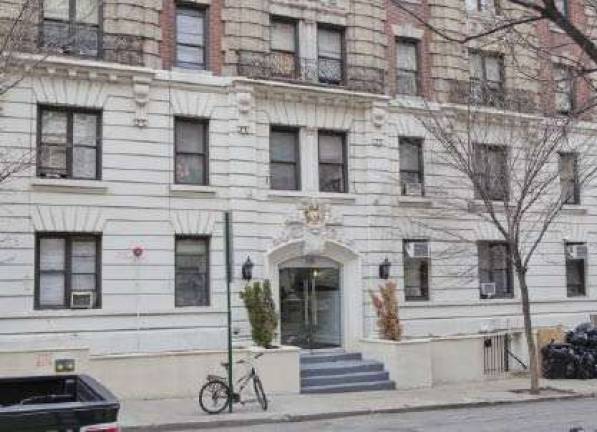City to Halve Homeless Shelter Residents

People living at Freedom House agree that the city should reduce the number of residents there
Upper West Side Last week, city officials announced that the homeless shelter at 316-330 West 95th Street, known as Freedom House, will be reducing the number of people it houses by half, by November of this year. The emergency shelter has generated heated debate in the neighborhood since its opening in 2012, and the announcement elicited sighs of relief as well as more debate surrounding the use of the building and the concentration of homeless services on the Upper West Side.
Many West Side residents have opposed the use of Freedom House by the Department of Homeless Services. The local nonprofit organization Neighborhood in the Nineties filed a lawsuit to stop the practice, arguing that the building should be converted to its intended use as inexpensive rentals. Their suit was rejected by the state Supreme Court this month, but the group made it clear they will continue to fight for the shelter's closing. "The shelter must be closed entirely and returned to affordable housing for the working poor," read a statement by Neighborhood in the Nineties.
Several city officials have also joined the fight to close Freedom House, including City Councilwoman Helen Rosenthal and Manhattan Borough President Gale Brewer. "The first thing that I'm front-and-center focused on is the homeless shelter on 95th Street," Rosenthal told DNAinfo.com in January. "One of my first priorities is unraveling that contract and finding a better solution for the people that need homeless services, and the people in that neighborhood."
The city's announcement to bring the number of residents at Freedom House from 400 to 200 within the next eight months is seen by some as the first step in closing the shelter all together. The news, however, had not trickled down to the people living at Freedom House, who got no official word about the decision to downsize at the shelter.
Alice Morell has lived at Freedom House with her husband for 18 months, as climbing rents in New York became too expensive for them to handle. While trying to get back on her feet, Morell has felt much safer being able to live in a clean neighborhood since so many shelters are in worse-off parts of the city.
"I've been in other shelters, but this one has been the best," she said. "We can actually save money and live our life safely here."
Morell explained that she would be happy if they got rid of the residents who use drugs, and linger in front of the shelter making neighboring residents nervous. She isn't alone in that opinion. Robert, a 24-year-old resident, is happy to hear that they will be getting rid of some residents, and also hopes that they use this as an opportunity to clean up the shelter.
"If they're cutting the occupancy level, my hope is that they try to cut the people who are addicts. I don't use drugs, and I don't think you should mix those two groups of people together," he explained. Like Morell, he is also in the shelter as a result of financial struggles.
"I think what it really boils down to is DHS itself, New York City has to get to a point where they are working with the homeless, and not against us," he said. "We all have our different situations, but we're all in the same predicament. It just needs to be about working together."
Although several people living in the shelter said they're OK with decreasing its occupancy, they also fear that it is just the first step to it closing completely. Both Robert and Alice Morell expressed an understanding as to why people might want it to be closed, but are uncertain about what they will do if they are relocated.
One Upper West side resident, who asked to remain anonymous, has lived around the corner on 95th Street and Riverside Dirve for the past 28 years. She hasn't seen that much change on the block since Freedom House opened two years ago.
"It has made the most minor change, and diversity is what makes New York City so fabulous," she said. "My personal opinion is that [Freedom House] has had no real material impact, other than the fact that it gives people without a home a place to live."